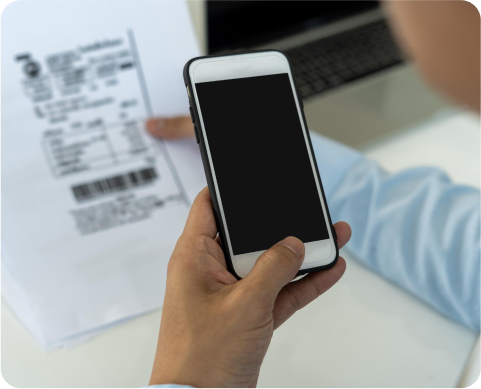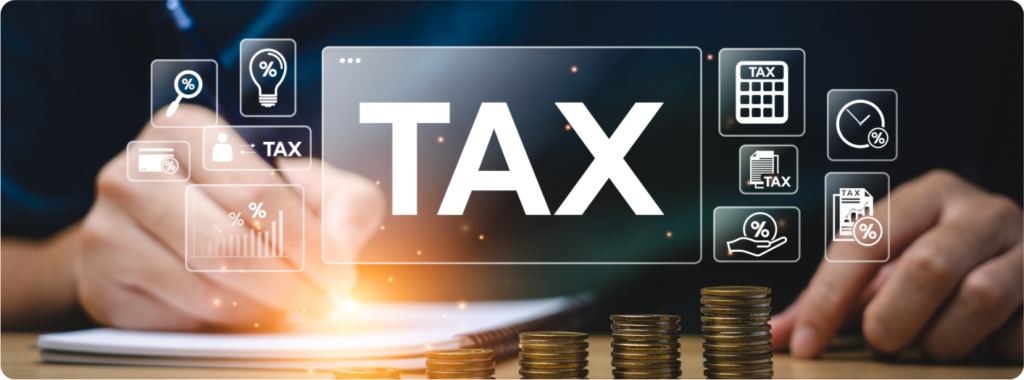Expense tracking is a crucial aspect of financial management for independent contractors. It can significantly impact taxable income, maximize tax deductions, and improve financial health.
While tracking expenses may seem daunting, the benefits far outweigh the challenges. Modern expense-tracking apps and accounting software have revolutionized the process, making it easier for self-employed individuals to keep track of their business expenses efficiently.
Key Takeaways
- Independent contractors who implement systematic expense tracking can reduce their annual tax liability by an average of $3,000 to $5,000.
- Digital expense management tools cut administrative time by 60% compared to manual methods, freeing up nearly 200 hours per year for billable work.
- Proper categorization of business expenses typically uncovers 15-20% more deductible items, directly impacting an independent contractor's bottom line.
- Real-time expense tracking improves project profitability assessments by 40%, enabling contractors to make data-driven decisions about which clients and projects to pursue.
- Contractors using automated mileage tracking report an average of 2,000 more deductible miles annually than manual logging, equating to over $1,000 in additional tax deductions.
Index Table
- The Financial Impact of Expense Tracking for Independent Contractors
- Understanding Deductible Expenses for Freelancers
- Overcoming Common Expense Tracking Challenges
- Best Practices for Efficient Expense Management
- Leveraging Technology for Streamlined Expense Tracking
- Maximizing Tax Deductions Through Accurate Reporting
- Timesheets.com: A Comprehensive Solution for Contractors
- Conclusion: Empowering Financial Success Through Expense Tracking
The Financial Impact of Expense Tracking for Independent Contractors
Expense Tracking and Taxable Income
- Reduce taxable income
- Identify all eligible deductions
- Ensure compliance with tax regulations

Cash Flow Management
- Better budget planning
- Improved financial forecasting
- Identification of unnecessary spending
Long-term Financial Benefits
- Enhanced financial planning capabilities
- Easier access to loans or investment opportunities
- More accurate pricing for services

The Cost of Poor Expense Tracking
- Missed tax deductions
- Inaccurate financial reports
- Potential audit risks
Understanding Deductible Expenses for Freelancers
Common Deductible Expenses
Home Office Expenses:
- Rent or mortgage interest
- Utilities
- Property taxes
- Home Insurance
Travel and Transportation Costs:
- Mileage tracking for business-related driving
- Public transportation fares
- Accommodation for business trips
- Meals (subject to limitations)
Office Supplies and Equipment:
- Computer hardware and software
- Desk, chair, and other furniture
- Stationery and printing costs
Professional Services and Development:
- Legal and accounting fees
- Business Insurance
- Professional development courses
Often Overlooked Deductible Expenses
- Bank fees for business accounts
- Advertising and marketing costs
- Subscriptions to industry publications
- Membership fees for professional organizations
Importance of Proper Expense Categorization
- Maximizing tax deductions
- Simplifying tax preparation
- Providing insights into spending patterns
Record-keeping Requirements for Tax Purposes
- Receipts (physical and digital)
- Bank statements
- Credit card statements
- Invoices and pay stubs


Boost Efficiency
Dive into a Free Trial Today!
Overcoming Common Expense Tracking Challenges
Dealing with Manual Data Entry and Paper Receipts

- Use expense tracking apps with document scanning features
- Opt for accounting software that offers live bank connections
- Set up recurring expense entries for regular payments
Managing Expenses Across Multiple Clients and Projects
- Use project management tools integrated with your expense tracker
- Assign unique codes or tags to each client or project
- Generate custom reports to break down expenses by client or project

Separating Personal and Business Expenses

- Open dedicated business bank accounts and credit cards
- Use separate expense tracking apps for personal and business expenses
- Regularly review transactions to ensure proper categorization
Staying Consistent with Expense Logging
- Set aside dedicated time each week for expense management
- Use mobile apps to log expenses on-the-go
- Automate expense tracking where possible with bank feeds and receipt scanning

Handling Irregular or Infrequent Expenses

- Create reminders for annual or semi-annual expenses
- Use a digital calendar to track upcoming irregular expenses
- Review past years’ expenses to identify potential overlooked items
Best Practices for Efficient Expense Management
Creating a Chart of Accounts
- Categorize expenses based on tax-deductible items
- Include categories for common business expenses like office supplies and travel expenses
- Ensure alignment with IRS guidelines for easy tax preparation
Regular Financial Review and Reconciliation
- Set aside time weekly or monthly to review expenses using your contractor expense tracker
- Reconcile bank accounts and credit card statements
- Analyze spending patterns to identify areas for cost-cutting
Digital Filing System for Receipts and Documents
- Use an expense tracking app to digitize physical receipts
- Implement a consistent naming convention for files
- Utilize cloud storage for easy access and backup
Separate Business and Personal Finances
- Open dedicated business bank accounts and credit cards
- Use separate apps for independent contractors to track business and personal expenses
- Regularly review transactions to ensure proper categorization

Effortless Time Management
Get Started with a Free Trial!
Leveraging Technology for Streamlined Expense Tracking
In today’s digital age, independent contractors have access to a wide range of apps for independent contractors that can significantly simplify the process of managing business expenses, including expense tracking for business travelers. These tools help ensure that every business-related travel cost is accurately recorded and categorized, making tax season easier and more efficient.
Overview of Expense Tracking Apps and Software
- Real-time expense logging
- Automated categorization of expenses
- Integration with bank accounts and credit cards
- Mobile apps for on-the-go expense management
Key Features to Look for in Expense Management Tools

- Receipt scanning and OCR technology
- Mileage tracking capabilities
- Custom report generation
- Multi-platform accessibility (desktop and mobile)
- Integration with accounting and tax software
Comparison of Popular Expense Tracking Solutions
- QuickBooks Self-Employed
- Wave Accounting
- FreshBooks
- Expensify
Integration Capabilities

- Accounting software for comprehensive financial management
- Tax preparation tools for streamlined tax filing
- Project management platforms for client-specific expense tracking
The Role of AI and Automation
- Automatically categorize expenses
- Predict recurring expenses
- Flag potential tax deductions
- Generate insightful financial reports

Maximizing Tax Deductions Through Accurate Reporting

Strategies for Identifying Eligible Deductions
- Stay informed about tax-deductible expenses for independent contractors
- Review IRS publications regularly for updates
- Consult with a tax professional to identify industry-specific deductions
Real-time Expense Tracking for Tax Planning
- Maintain an up-to-date view of your tax situation
- Make informed decisions about purchases and investments
- Avoid last-minute scrambles during tax season
Creating Custom Reports for Tax Preparation
- Detailed expense reports by category
- Profit and loss statements
- Mileage logs for business travel
Working with Tax Professionals
- Review your expense tracking methods
- Identify additional deduction opportunities
- Ensure compliance with tax regulations specific to independent contractors
Preparing for Potential Audits
- Keep digital copies of all receipts and invoices using your expense tracking app
- Maintain detailed logs for business mileage and travel expenses
- Document the business purpose for each expense
Timesheets.com: A Comprehensive Solution for Contractors
Timesheets.com: offers a robust contractor expense tracker tailored to the needs of independent contractors and self-employed professionals.
Key Expense Tracking Features
- Easy-to-use expense logging interface
- Automated categorization of expenses
- Receipt scanning and storage
- Mileage tracking for business travel
- Custom report generation for tax preparation
Addressing Common Contractor Pain Points
Timesheets.com: helps independent contractors overcome challenges such as:
- Managing expenses across multiple clients and projects
- Separating personal and business expenses
- Staying consistent with expense logging
- Preparing accurate financial reports for tax purposes
Getting Started with Timesheets.com:
To begin using Timesheets.com: as your expense tracking app:
- Sign up for a free trial
- Set up your account and customize categories
- Start logging expenses and generating reports
- Explore integration options with your existing tools
Timesheets.com: offers a user-friendly, comprehensive solution for independent contractors looking to streamline their expense tracking and financial management processes
Conclusion: Empowering Financial Success Through Expense Tracking
- Maximize tax deductions and reduce taxable income
- Improve cash flow management and financial planning
- Make data-driven decisions about their business finances
The long-term impact of diligent mileage & expense management extends beyond tax savings, contributing to overall business growth and profitability. As the business landscape evolves, leveraging technology like contractor expense trackers becomes increasingly crucial.
Take action today to implement a comprehensive expense tracking solution. Whether you choose Timesheets.com or another expense tracking app, the key is to start tracking your expenses systematically. Your future self will thank you come tax season, and your business will benefit from the increased financial clarity and control.





